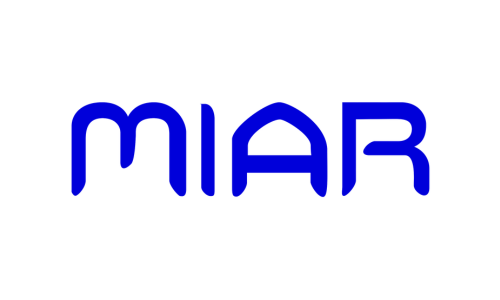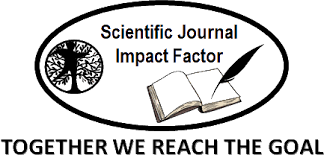EXPLORING THE CRITICAL PERIOD HYPOTHESIS: PERSPECTIVES, THEORIES, AND IMPLICATIONS FOR LANGUAGE ACQUISITION
DOI:
https://doi.org/10.58885/ijllis.v14i3.34maKeywords:
The Critical Period Hypothesis, Noam Chomsky, Innateness Hypothesis, Children, Acquisition, etc.Abstract
The whole purpose of this research is to describe what exactly the Critical Period Hypothesis is. The researcher takes into account different opinions of various authors on what specifically they have emphasized regarding the Critical Period Hypothesis. The Critical Period Hypothesis states that language acquisition becomes significantly more challenging and ultimately less successful after the first few years of life, which is the period when language develops most easily. This typically occurs between the ages of five and puberty. However, this does not imply that every researcher agrees—or should agree—with this theory. Noam Chomsky, one of the most well-known linguists of the twentieth century, founded his linguistic theories on certain philosophical ideas. Transformational Generative Grammar, based on mentalist philosophy, represents his primary contribution to linguistics. According to his Innateness Hypothesis, developed in the context of language learning, children are born with an inherent knowledge of the basic rules of grammar. Despite the complexity of the process, this innate knowledge aids children in acquiring their native language naturally and methodically. During a child's developmental stage, language acquisition is considered one of the most challenging processes. From the first few weeks of life until the mastery of grammar, the process of first language acquisition is carefully examined. The question of whether children learn their native language naturally or through significant effort remains a topic of considerable debate. Despite not being universally accepted, the Innateness Hypothesis remains the most compelling theory to explain how children acquire language. What, then, is the relevance of the critical period concept for adult learners as opposed to children? This, along with other important questions related to the issue, is addressed in the following sections.
References
Chomsky, N. (1986). Knowledge of language. New York, NY: Bloomsbury Academic.
Chomsky, N. (2002). On nature and language. Cambridge, UK: Cambridge University Press.
Lenneberg, E. (1959). Biological foundations of language. New York, NY: Wiley.
O’Grady, W. (2005). How children learn language. Cambridge, UK: Cambridge University Press.
Penfield, W., & Roberts, L. (1959). Speech and brain mechanisms. Princeton, NJ: Princeton University Press.
Skinner, B. F. (1957). Verbal behavior. New York, NY: Appleton-Century-Crofts.
Siahaan, F. (2022). The critical period hypothesis of SLA Eric Lenneberg's. Journal of Applied Linguistics, 6(2), 40–50. Retrieved September 2025, from https://journal.eltaorganization.org/index.php/joal/index
Vanhove, J. (2013). The critical period hypothesis in second language acquisition: A statistical critique and a reanalysis. PLOS ONE, 8(7), e69172.
https://doi.org/10.1371/journal.pone.0069172
Wikipedia. (2024). Jean Piaget. In Encyclopedia Britannica. Retrieved September 2025, from https://www.britannica.com/science/developmental-psychology
Downloads
Published
How to Cite
Issue
Section
License
Copyright (c) 2025 Author

This work is licensed under a Creative Commons Attribution 4.0 International License.
Declaration/Copyright transfer:
1. In consideration of the undertaking set out in paragraph 2, and upon acceptance by ANGLISTICUM for publication of the manuscript in the Journal, I/We hereby assign and transfer publication rights to ANGLISTICUM, whereas I/We retain the copyright for the manuscript. This assignment provides ANGLISTICUM the sole right and responsibility to publish the manuscript in its printed and online version, and/or in other media formats.
2. In consideration of this assignment, ANGLISTICUM hereby undertakes to prepare and publish the manuscript in the Journal, subject only to its right to refuse publication if there is a breach of the Author’s warranty in paragraph 4 or if there are other reasonable grounds.
3. Editors and the editorial board of ANGLISTICUM are empowered to make such editorial changes as may be necessary to make the Manuscript suitable for publication.
4. I/We hereby acknowledge that: (a) The manuscript submitted is an original work and that I/We participated in the work substantively and thus I/We hereby are prepared to take public responsibility for the work; (b) I/We hereby have seen and approved the manuscript as submitted and that the manuscript has not either been published, submitted or considered for publication elsewhere; (c) The text, illustration, and any other materials included in the manuscript do not infringe upon any existing copyright or other rights of anyone.
5. I/We hereby indemnify ANGLISTICUM and the respective Editors of the Journal as mentioned in paragraph 3, and hold them harmless from any loss, expense or damage occasioned by a claim or suit by a third party for copyright infringement, or any suit arising out of any breach of the foregoing warranties as a result of publication of the manuscript.














